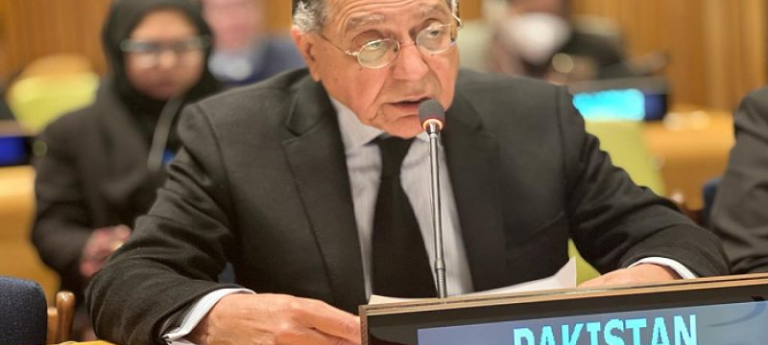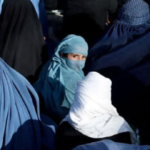Pakistan has called for the implementation of UN Security Council resolutions that allow the people of Kashmir and Palestine to exercise their right to self-determination, claiming that doing so would help maintain international peace and security. These resolutions are based on unresolved conflicts in Palestine and Kashmir.
“The Security Council must actively promote the resolution of conflicts and disputes, not just manage them, much less ignore them,” says the statement. On Thursday, Pakistan’s permanent representative to the United Nations, Ambassador Munir Akram, made the announcement.
During a discussion on “the Rule of Law among Nations,” he stated, “The Council has not been able to secure consistent implementation of its own resolutions, such as the resolutions relating to Palestine or Jammu and Kashmir.”
The Pakistani ambassador continued, “in these cases, the right to self-determination has been brutally suppressed and foreign occupation has been permitted to persist over several decades.” The methods by which this principle can be universally and consistently implemented in today’s context must be elaborated.
He also mentioned that the Charter explicitly prohibits the use of force, with the exception of defense, and that the international community has passed laws to regulate the use of force, particularly military force. It has set down standards that have been established to keep world control throughout recent many years and forestall a whole new universal conflict.
Ambassador Akram stated that because Member States are obligated to implement the Council’s decisions under Article 25 of the Charter, the Security Council’s resolutions, whether adopted under Chapter VI (pacific settlement of disputes) or Chapter VII (enforcement action) of the UN Charter, are legally binding.
He stated that the Secretary-General ought to be less reticent in exercising his authority under Article 99 of the Charter, which grants him the responsibility of leading the Security Council to take action whenever and wherever international peace and security are in jeopardy.
The Secretary-General’s “good offices” should not be refused by any conflicting party; the Pakistani envoy stated, and neither rejects mediation or arbitration. Additionally, judicial mechanisms, particularly the International Court of Justice (ICJ), should be fully utilized, such as by obligating the Court’s jurisdiction over issues on the Security Council’s agenda.
According to Ambassador Akram, the upkeep of interpersonal and societal institutional relationships at the national and international levels depends on the rule of law.
He stated, “Today, world peace and the international security architecture are under grave threat.” There are a number of issues that must be addressed, including how to:
- Encourage universal and consistent respect for the UN Charter’s fundamental principles;
- Address the root causes of disagreements and conflicts; contain tensions between great powers, which frequently paralyze the Council;
- Put an end to the new arms race that is getting worse, including in new areas and weapons; and, — give the United Nations and its agencies full authority to construct a long-lasting framework for international peace and security.







